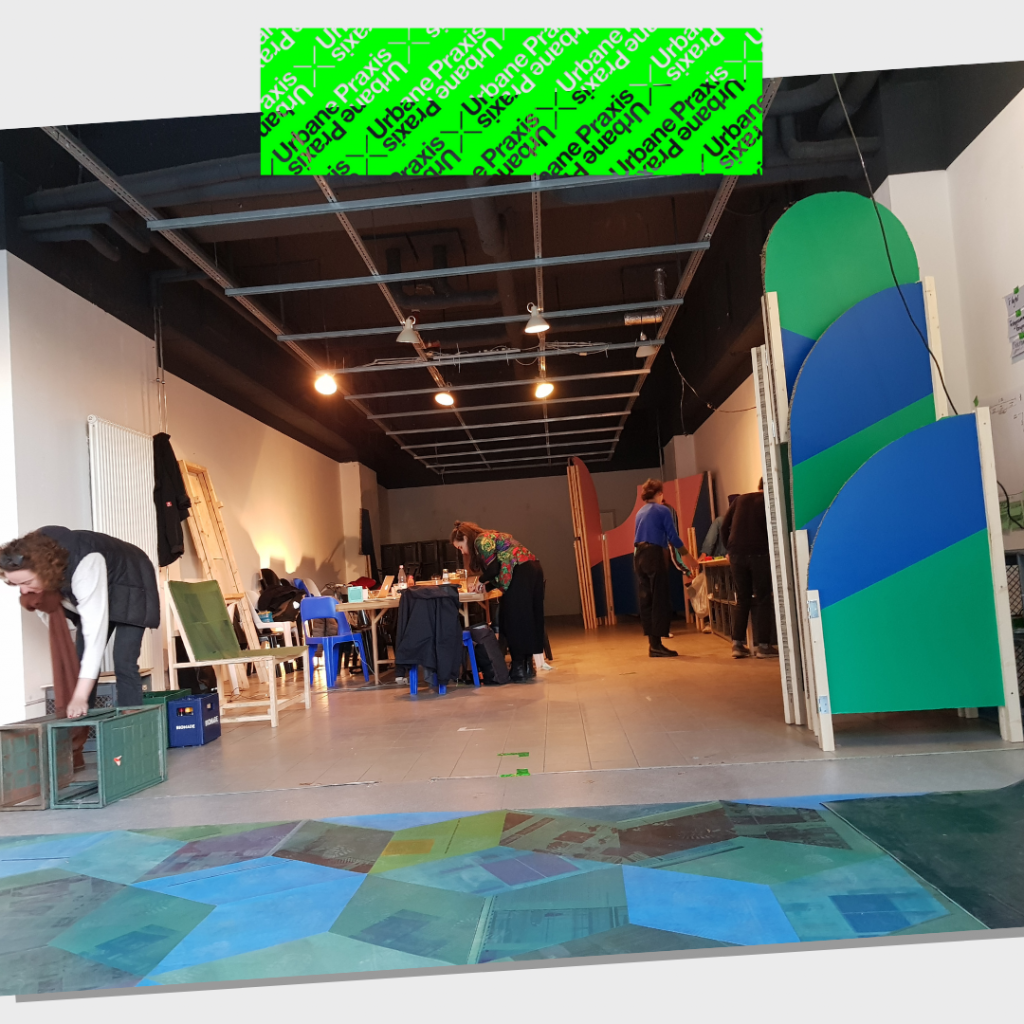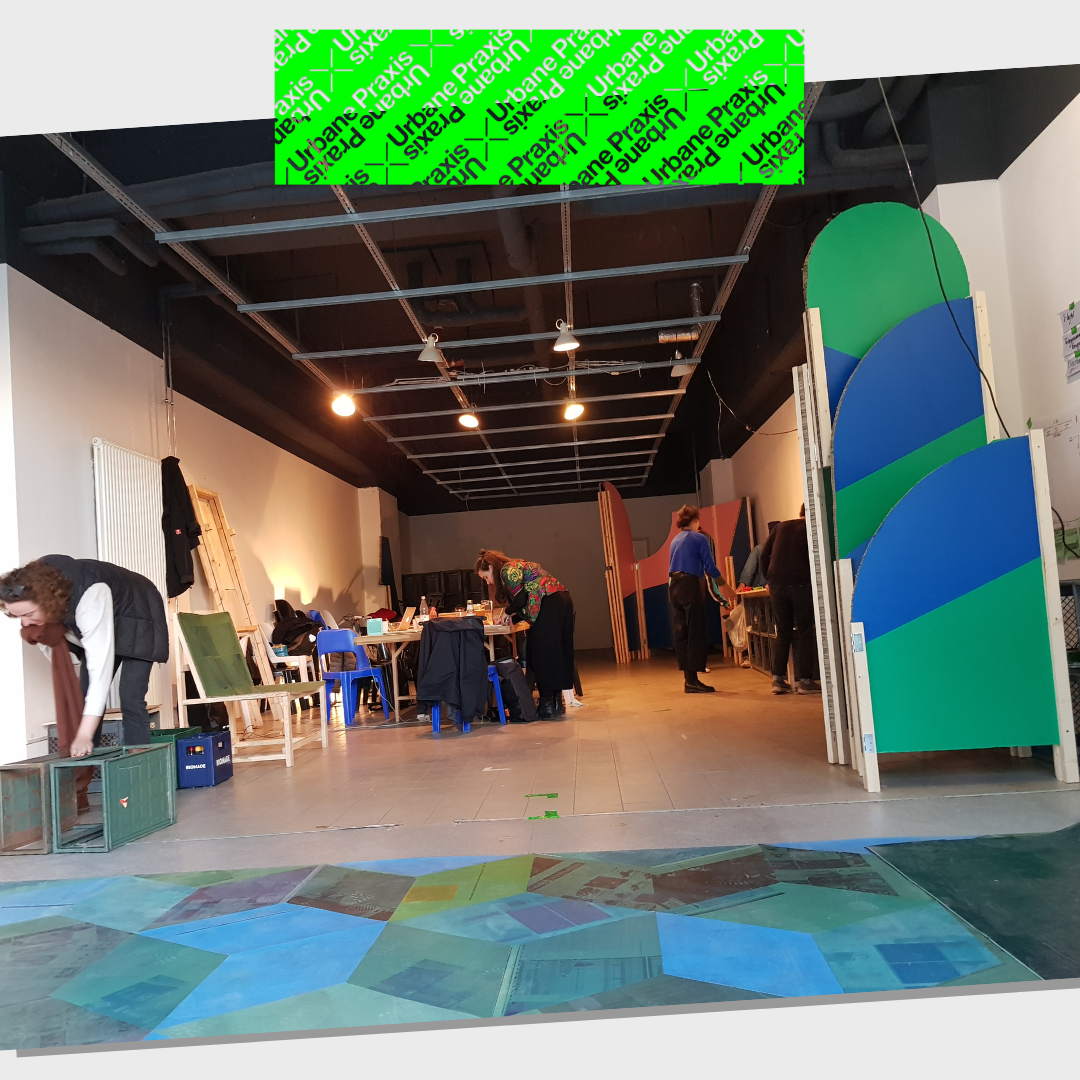The Office for urban cross-cutting tasks
The Office for urban cross-cutting tasks is regarded as an interface that

Demanded in the action plan of the Initiative Urbane Praxis and further developed during workshop with the same name in the frame of the FreiRaum Konferenz 2021, the Office for urban cross-cutting tasks is conceived as an interface that facilitates future-oriented strategy development, mediation, long-term networking, support in approval procedures, knowledge storage and transfer between urban makers and authorities by conducting intermediary and interdepartmental work. This will better support and secure spaces for socio-cultural practices, for art and culture and for city-and-others-making in the long term.
The need for an Office for urban cross-cutting tasks was derived from various challenges and deficiencies, including a lack of knowledge exchange and networking formats between practitioners and administration as well as among projects, interdisciplinarity of funded formats, unclear responsibilities, complex and confusing approval and building application procedures, short-term funding and a lack of intermediary structures that enable interdepartmental urban development.
Tasks of the Office for urban cross-cutting tasks
Core tasks:
• Information work for civil society and for the administration and knowledge transfer/exchange (including archiving, evaluation, collection and dissemination of recommendations for action and guidelines as well as precedents and best practices).
• Translation between administration, city makers and technicians
• Networking, mediation and cooperation
• Support work and network building
• Support with approval and building application procedures
• Political work (research work, campaigning, development of policy proposals)
Further tasks:
• Curation of formats such as “the month of urban opportunities”.
• Mediation and advisory function
• Use management in public space
• Development of further training offers for city makers and for the administration
Besides, the Task Force for Threatened Spaces would enable rapid action in crisis situations.
Structural connection of the Office for urban cross-cutting tasks
• The office should move between administration, politics and civil society in order to inform and support, promote exchange, but also create commitment
• Close to the institutions, but with sufficient flexibility
• Need for a long-term perspective to build basic trust between the different groups of actors
Specific task areas to facilitate readability from the outside.
It remains open at which level the Office should work (senate/state or district level) and what decision-making authority it has.
Upcoming steps
• Networking to find committed people who can contribute to the (further) development of the Office.
• Research work on interfaces and already existing structures (e.g. AKS Gemeinwohl, Zusammenstelle Rathausblock, LokalBau, ZORA, Taskforce “Stadtquartiere und Entwicklungsräume”, Wohnungsbauleitstelle bei SenStadt, City Lab, Sozialraumorientierte Planungskoordination).
You can hear more about the idea of an Office for urban cross-cutting tasks in the 9th episode of the podcast series “Fuß in der Tür” (Foot in the door – in German only).
A second workshop is planned for November 2021 in the “Lobby“.
